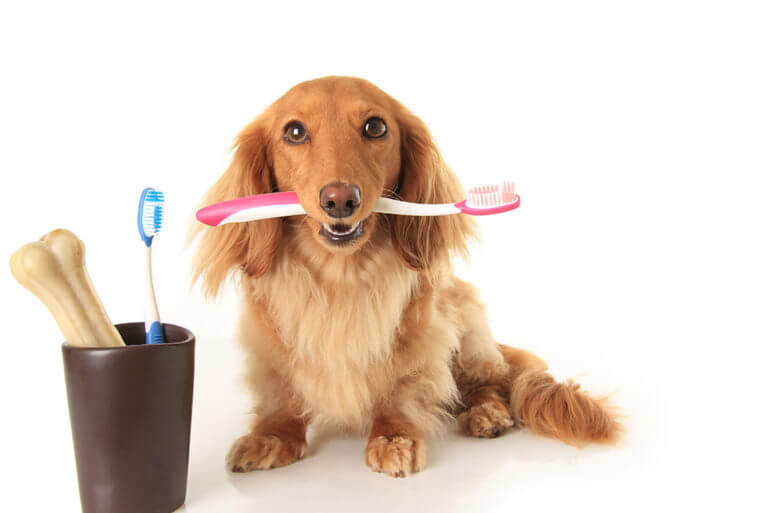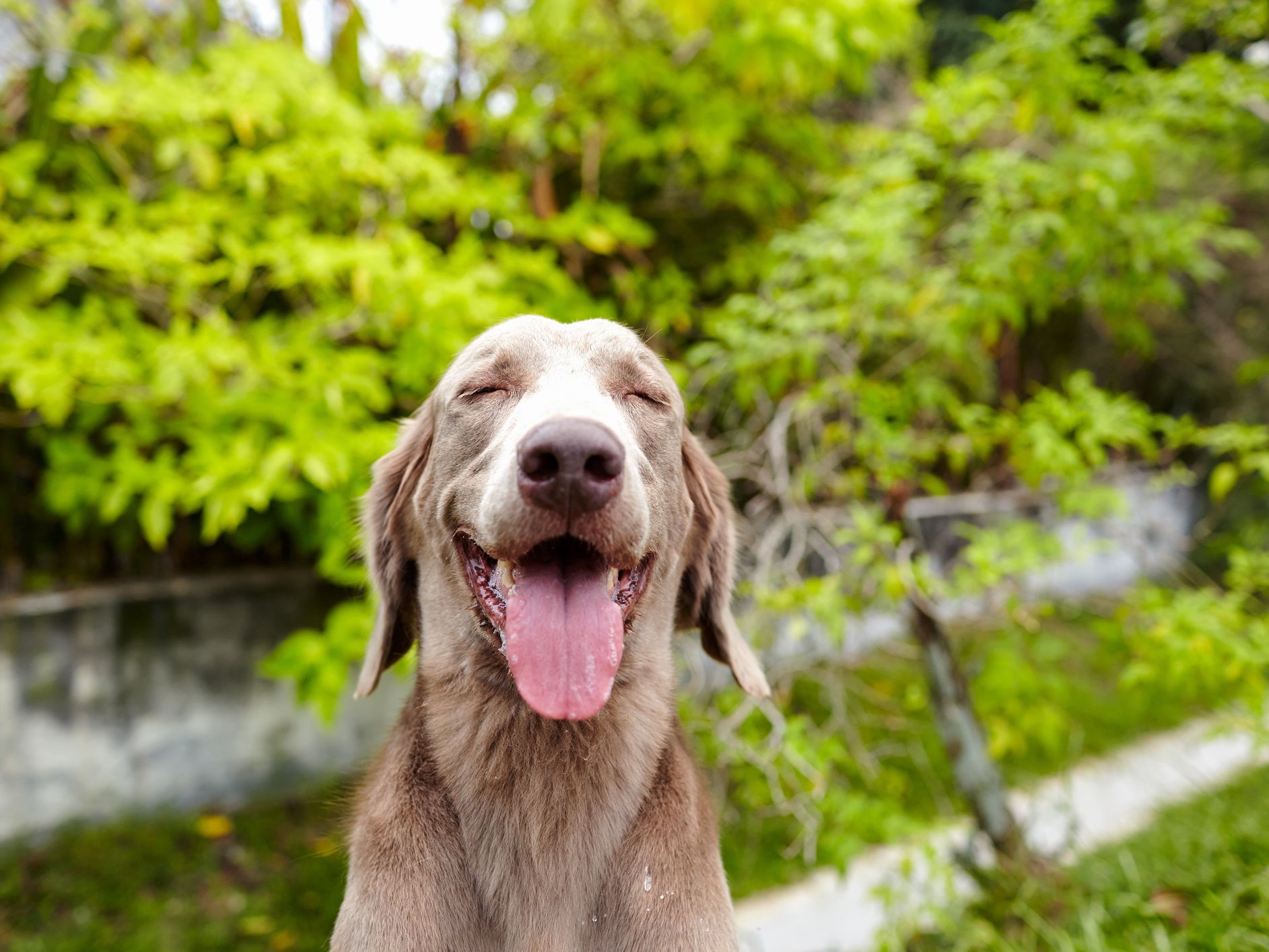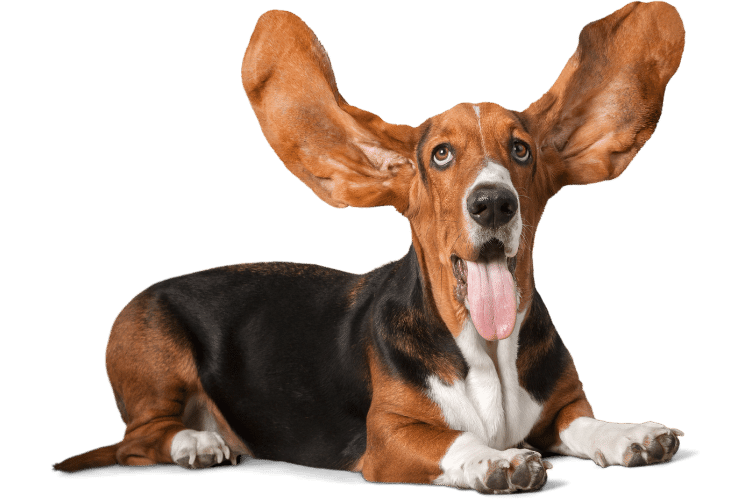
Does your dog look sweet and innocent until he opens his mouth? A dog that has bad breath can be a problem that makes you want to stay away! Here’s what to do:
One of the first and more important steps of dealing with bad breath in dogs is to discover why it’s happening. You can’t treat it effectively if you aren’t sure what the real problem is!
Once the cause has been identified, it is more effective to search for common reasons and treatments, such as:
Dental disease is the most common reason behind bad breath. Don’t assume that because your pup is young they can’t have dental disease – most of it starts from about 2 years!
It’s caused by plaque—a substance made up of leftover particles of food that coats the teeth. Plaque calcifies and becomes tartar—a crusty film, which gets quite difficult to remove.
Symptoms include swollen, inflamed gums, refusing to eat, or eating very tentatively. And of course, terrible breath!
Dental (tooth and gum) disease is a painful problem and can lead to other problems such as kidney and heart disease.
What to do?
The simplest way to prevent bad dog breath is to brush your dog’s teeth on a regular basis. Teeth brushing reduces plaque and promotes better oral hygiene, much as it does in humans, and with a little training, most dogs learn to enjoy having their teeth brushed. BUT Never brush your dog’s teeth with toothpaste meant for people, as it may contain ingredients that are toxic to dogs, like xylitol.
Our WildWash Spa grooming salon at The Mutz Nutz in Notting hill offers an amazing teeth cleaning service that will get rid of the plaque and leave the teeth sparkling. For more information please call 020 7243 3333 or email jane@themutznutz.com
If your dog’s breath is still consistently awful, a trip to the vet is a good idea! Dental disease can be treated by antibiotics, or removing some of the affected teeth.

Feeding your dog a quality, balanced diet, providing them with plenty of exercise and taking them to the veterinarian for regular check-ups can help prevent systemic disorders like diabetes. Plus, keeping your dog healthy helps avoid a host of other health problems, and can help your veterinarian pick up on the underlying cause of your dog’s bad breath before it gets too bad.
The Dog Dental Sticks (dental bones) are a healthy option with a specially formulated recipe that attack plaque and support healthy teeth and a hard texture. These dental sticks provide the crunch required to rub away plaque. Made with natural ingredients – Slippery Elm and proven ingredients that reduce plaque formation, helping keep those pearly whites, white.
If you’ve recently switched your dog’s food, your dog might just need time to adjust to the new diet. As long as your dog’s stools are normal and everything else is OK, you can just wait it out. But consider a different diet if the dog doesn’t do well with the new one.
Metabolic diseases can also cause bad breath – especially diabetes and kidney failure. These conditions are both associated with changes in urination and drinking, and often weight loss. If untreated, both are potentially fatal.
Bad breath in dogs isn’t just sour!
In diabetes, the breath may smell sweet (because of the excess sugar in the bloodstream); sour (because of increased bacterial growth, as the bacteria feed on the sugar); or musty (as yeasts grow in the mouth). In kidney failure, the breath may smell metallic (due to a build-up of toxins and waste products that the kidneys aren’t filtering).

Share this post with your friends and family

Join our email list to stay up-to-date about the latest products and offers, plus get
10% OFF
your first purchase.
By submitting, you agree to receive marketing emails for information on news, promotions, and offers from WildWash. For more details see our Terms & Conditions and Privacy Policy. You can unsubscribe at anytime.
